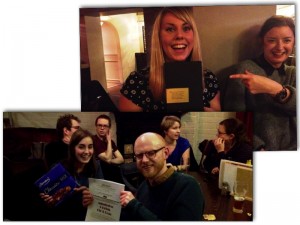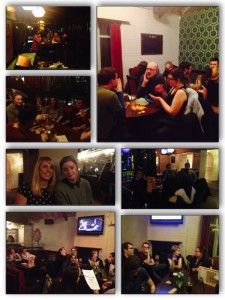Here is the first of our weekly events-newsletters. If you would like to promote an event through our newsletter please get in touch with me (m.ahlers1@ncl.ac.uk).
PGF Lunchtime Seminar
Wednesday 21st October, 1-2pm, Armstrong Building, Room 2.50
Xu Hong (UCD): ‘Did Philip intend to invade Italy: A case study of the application of the Realist theories to the Hellenistic international relations’
Research Seminars
Archaeology:
Archaeology Research Seminar:
Thursday 22nd October, 4-5pm, Armstrong Building, Room 2.16
Matthew Haysom (Newcastle University): ‘Reconstructing life on Late Bronze Age Crete’
Classics and Ancient History:
Classics and Ancient History Research Seminar
Wednesday 21st October, 5-7pm, Armstrong Building, Room 2.50
Edith Foster (CWRU): ‘The Paradoxical Battle Narratives of Xenophon’s Hellenica’
History:
Wednesday 21st October, 5-7pm, Armstrong Building, Room 1.04
Tim Strangleman (University of Kent): ‘Visualising Work in the Twentieth Century: Guinness and the Life and Death of an English Brewery’
Further School Events
Field trip organised by Dr Susanna Phillippo (please get in touch with her if you are interested)
Sunday 25th October: Corbridge/Corstopitum: Roman site and village (afternoon)
• Corstopitum fort: important ‘crossroads’ settlement in Roman times, predating Hadrian’s Wall: extensive remains and a good museum including the famous ‘Corbridge Lion’; also the chance to walk along a Roman road! (the Stanegate);
• Corbridge village: one of the Tyne valley’s most attractive, including partly Saxon church creatively reusing Roman stonework (also excellent tea shops and at least one historic pub!)
Newcastle University
Public Lecture:
20th October, 17:30-18:45, Curtis Auditorium, Herschel Building
All changed, changed utterly
Clare Marx, President of the Royal College of Surgeons
(free admission, no pre-booking required)
22nd October, 17:30-18:45, Curtis Auditorium, Herschel Building
Culture in question: ‘everyday participation’ and the contest over cultural value
Dr Andrew Miles, ESRC Centre for Socio-Cultural Change, University of Manchester

 o
o